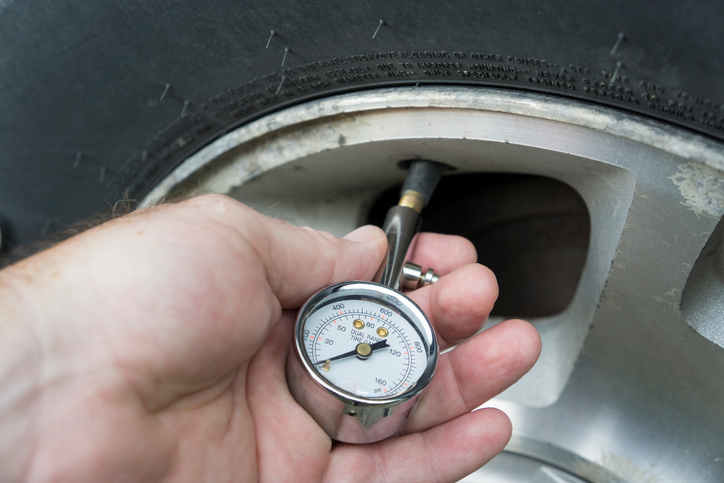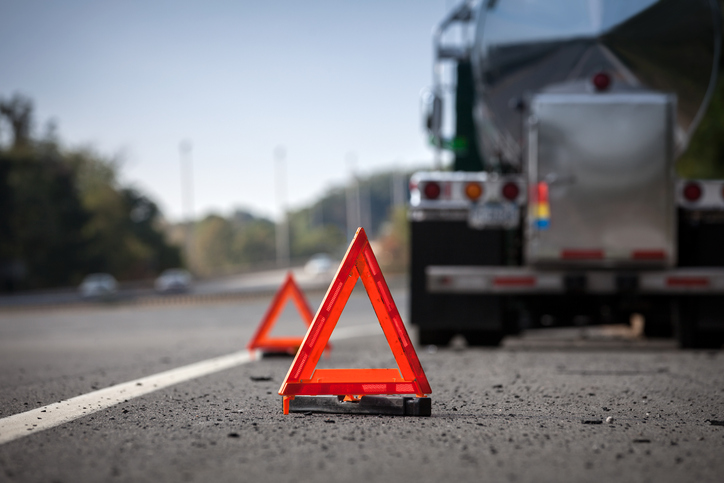Reduced Maintenance
 There are several key steps in developing a successful manual tire pressure maintenance program. First and foremost, who is responsible for performing the tire pressure checks and what should the target tire pressures be?
Next, how often are these checks required and what does the procedure entail? All of this information must then be effectively communicated to personnel and calibrated gauges must be provided.
Finally, it is critical for management to make sure the program is followed consistently.
There are several key steps in developing a successful manual tire pressure maintenance program. First and foremost, who is responsible for performing the tire pressure checks and what should the target tire pressures be?
Next, how often are these checks required and what does the procedure entail? All of this information must then be effectively communicated to personnel and calibrated gauges must be provided.
Finally, it is critical for management to make sure the program is followed consistently.
The upfront time and effort required to establish a tire pressure maintenance program often goes unnoticed. The easiest element to track is simply the time the operator spends performing the actual pressure checks.
It is estimated to take 693 minutes per year to perform weekly trailer tire pressure checks. This is assuming 13.33 min./check x 52 checks/year per trailer. Keep in mind this is just one trailer.
If a fleet has multiple trailers, the minutes can add up quickly.
THE TIREMAAX® ADVANTAGE
TIREMAAX systems provide automatic tire pressure adjustments providing operators a time saving alternative to manual tire pressure checks.
TIREMAAX PRO and PRO-LB automatically inflate underinflated tires by using the trailer air supply and prevent overinflation by relieving air from the tires back through the controller.
By constantly monitoring trailer tire pressure and automatically adjusting as necessary, the need for weekly manual tire pressure checks is dramatically reduced. Hendrickson simply recommends a manual tire pressure check be performed every 3 months on trailers equipped with TIREMAAX PRO and PRO-LB.
Thus, reducing the number of checks performed annually from 52 to 4 in the above example, would result in a savings of 640 min/year per trailer. Now, rather than watching maintenance expenses add up, savings can add up.
SOURCE:
NACFE Tire Pressure Systems - Confidence Report
FMCSA study – Commercial Vehicle Tire Condition Sensors

 Approximately half of all road calls are for tire-related issues. We know properly inflated tires can reduce the likelihood of flats, blowouts and breakdowns. Industry experts estimate as many as 85% of blowouts could be prevented if tires were properly inflated. The average out-of-pocket cost of a tire-related road call could easily reach $900, and that’s only the cost of one new dual trailer tire and the associated service call. The total expense could be much greater when factoring in items such as: distance from service provider, late freight penalties, reduced shipper confidence and a reduction in available driver hours-of-service.
Approximately half of all road calls are for tire-related issues. We know properly inflated tires can reduce the likelihood of flats, blowouts and breakdowns. Industry experts estimate as many as 85% of blowouts could be prevented if tires were properly inflated. The average out-of-pocket cost of a tire-related road call could easily reach $900, and that’s only the cost of one new dual trailer tire and the associated service call. The total expense could be much greater when factoring in items such as: distance from service provider, late freight penalties, reduced shipper confidence and a reduction in available driver hours-of-service.
 Proper tire inflation pressure is essential to the peak performance of a commercial vehicle. Underinflated tires cause an increase in surface contact, friction and heat and therefore increase fuel consumption.
Industry studies state vehicles running with tires underinflated by 10 psi can see a 1.5% decrease in fuel economy. That’s equivalent to $415 per tractor per year in excess fuel costs.
Imagine how quickly that can add up.
Proper tire inflation pressure is essential to the peak performance of a commercial vehicle. Underinflated tires cause an increase in surface contact, friction and heat and therefore increase fuel consumption.
Industry studies state vehicles running with tires underinflated by 10 psi can see a 1.5% decrease in fuel economy. That’s equivalent to $415 per tractor per year in excess fuel costs.
Imagine how quickly that can add up.